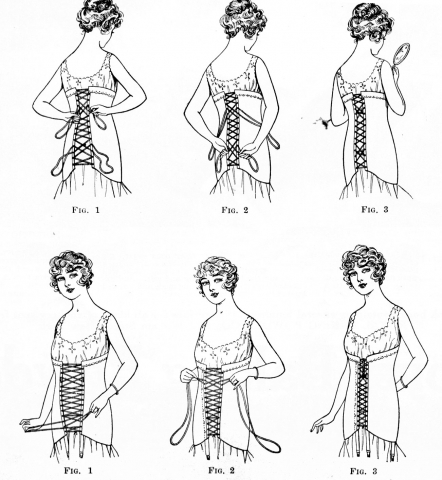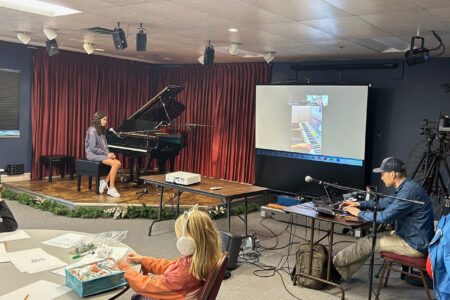TALES AND LEGENDS OF THE MOUNTAIN KINGDOM: Some Women of Rossland’s boom years
It’s time to tip the scales a bit – as much as I can given the resources that are available. I have done countless (it seems) profiles of men in Rossland’s boom years, except for the article on the red light district, because there is a lot of information out there about these men. Well-known women of Rossland are a different story.
This is a sign of the times: the Victorian era was, despite its romance, entirely chauvinistic and not particularly concerned with the concerns of women. Harold Kingsmill’s infamous “First History of Rossland, B.C : with sketches of some of its prominent citizens, firms and corporations” only profiles one woman, Mrs. Allan of the Hotel Allan fame, compared to around 36 men.
Statistics do show that there were a significant number of women in town during the boom years, even though their numbers were eclipsed greatly by the number of male residents. The 1901 census counted 1308 women in Rossland’s overall population of 6132, which is almost a five to one ratio in favour of the men. Interestingly enough, one was of African origin, but the women of Rossland were largely caucasian. Unless married and managing a household (2/3 of the 1308 women reported this as their occupation in the census), women were typically relegated to the drudgery of such thankless jobs as servants, cooks, seamstresses, laundresses, and chambermaids.
But there were some comfortable women in town, most notably Mrs. M.E. Allan herself, who, as previously mentioned, owned the Hotel Allan in downtown Rossland on the corner of Columbia Avenue and Washington Street. Originally from Ontario, Mrs. Allan was a hotel proprietoress of some note in the Kootenays as she also had a hotel in Nakusp, which she opened before she built the Allan. She also had significant investments in local mines, which was unusual for a woman at that time, and which speaks to her wealth and savviness. But Mrs. Allan was also known for something else a little more embarrassing, and that was her unluckiness in the marriage department.
Or was it unluckiness? One source quoted in Jeremy Mouat’s book, Roaring Days, said quite snarkily, “Mrs. Allen loved ‘em and left ‘em. She would slip across the border to Spokane and divorce each when tired of him. It is said that two or three of her ex-husbands were working around the place.” “The place” being the hotel itself. I can’t find out exactly how many times Mr.s Allan was married but it is fair to say that she did circumvent the social conventions of the time by getting divorced at all. And who knows why? Mouat goes on to say, “Mrs. Allan herself seems to have been quite concerned about her legal position with regard to her spouses.” This makes me think that she was worried about her property, money, and investments getting into the hands of her husbands. These were, after all, the times when a woman married, her husband gained a lot of control over his wife’s stuff. My guess is that she didn’t like this, but married a series of men to avoid scandal – though it was scandalous that she seemed to be a serial divorcee.
And the wealthy are vulnerable, too. Mrs. Allan was the victim of blackmail. During a corruption investigation in the town, “a police magistrate who owed her money had avoided repayment by threatening to prosecute her for bigamy.” Talk about scandal
Rossland had a few other female property owners. One was a Mrs. Louis Nadeau who owned the Hotel Spokane, which burnt down in one of our famous fires. A Mrs. E.G. Paulson was a business owner and ran a store, which also burned down in a fire, and there were a couple of women who owned boarding houses. A woman also ran the Rossland Opera House; her name was Mrs. Lillian Beddard.
But women of the Mountain Kingdom were resourceful, and though for many their days might have been filled with heavy toil, some of them got together to do social activities in their spare time. By 1898, there was a thriving women’s hockey team in town that took part in tournaments and was a draw for the Winter Carnival.
Of the lives of Rossland’s prostitutes, considered the lowest of the low on the social totem pole of Victorian society, I cannot find a lot of specific information, but one story does remain with a few details. Josie Perkins was a married “woman of ill repute”, but her husband lived in Vancouver. I don’t know how or why she came to Rossland – though it’s fun to speculate! – but she did have a boyfriend in town named Harry, who was “a white man, not a coloured man.”
Originally from San Francisco, Josie came to Rossland at the age of 23 in 1901, just shortly before the census was taken – and she was dead a month later. What happened? She had recently lost a baby that had died in infancy and was very depressed. She began perusing coffins at the local undertaker’s, and after putting a friend on the train she and another friend hung out at a couple of pubs and then had what would be Josie’s last meal, at a Chinese noodle house. Afterward, she inhaled a fatal amount of opium and died.
The even sadder part of this story is that very shortly after Josie died someone showed up in Rossland looking for her to tell her that she’d just inherited $30,000 from a dead relative. Josie Perkins, it was discovered, was a pseudonym, adding another tantalizing detail to her story. Was her death a suicide? A coroner’s inquest never did decide. That she hung with the wrong crowd was noted; in order to properly identify her, her body needed to be exhumed, and her fingernails were found to be “trimmed in the Chinese fashion,” which was apparently evidence enough that she spent time with the community’s much maligned Chinese population.
It would have taken a woman with a lot of tenacity to survive and thrive in Rossland’s rough and tumble, heavily isolated, and male-dominated environment, and as the above stories illustrate, some women made it and some didn’t. What remains now are their stories, ripe for the right imagination to come along and pick them clean. Though separated by over a century, I salute Mrs. Allan and Josie Perkins both for adding some texture to the otherwise predominantly masculine history of the Mountain Kingdom’s boom era.
Sources:
1. Roaring Days, by Jeremy Mouat
2. “First History of Rossland, B.C : with sketches of some of its prominent citizens, firms and corporations” by Harold Kingsmill
























